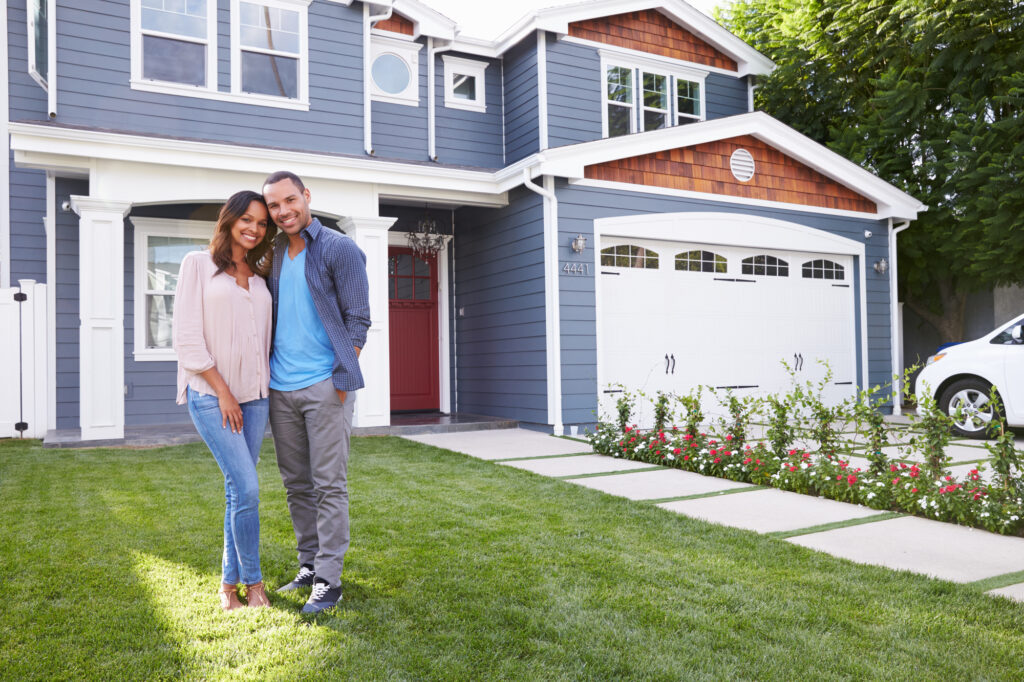It's easy to get torn between building and buying a home as a first-time homeowner. However, deciding on the option you should go for can be more straightforward if you're well-informed. That means going into both options' depths. That said, here's a guide that offers comprehensive information on building and buying a home to help you decide.
Home Buying Or Home Building: Which Is The Superior Choice?
Home buying and building are separate processes that all lead to a common aim—owning a home. They're both entirely procedural and take time, and although the former seems more straightforward, there's more that you should do. That includes house hunting, considering homeowners association fees, and assessing property conditions. With the home-building option, prospective homeowners may need to involve residential home builders to design and initiate the building process and follow through on it to completion.
It's easy to be caught between buying a home or building one from the beginning if you don't understand how both processes work. Each path presents a fair chance of challenges and opportunities, so you should consider researching.
Building A House
Building a home is more feasible if you want to customize one to your liking completely. The option lets you identify a lot to purchase, gather materials, and liaise with a construction company you find ideal for your budget. However, it has a few drawbacks that you should adequately assess before finalizing your decision.
Advantages Of Building A House
Below are the upsides of building a house over purchasing one:
- Better chance to customize: Most homeowners prefer building houses from scratch as it allows for maximum customization. That means they can find ideal locations proximal to social amenities, including schools and hospitals, for quick service access. Moreover, building a home makes it easier to include features essential to their lifestyle, heated bathroom floors, gas fireplaces, and sufficient storage.
- Lessened ongoing maintenance: Building a home from scratch helps you customize features and allows you to install new systems and fixtures that fit your preferences. And because they’re new and performing at their optimum, maintenance would most likely be minimal. On the other hand, buying a home can get you old systems, including compromised plumbing and electrical systems that might need servicing more often. There's a high chance that your home seller will ensure that they do initial maintenance. However, it may only be a matter of a few weeks before the old systems show faults and cost you repairs or replacements.
- Less competition: There’s usually less or no competition when building a house. You can build your house once you obtain your piece of land, collect materials, and liaise with construction companies. Meanwhile, some people may detest purchasing a home due to competition from other home buyers who suck them into bidding wars. Moreover, some house sellers may overestimate house prices, which may barely reflect the properties' actual value, and competing for such houses won’t be worthwhile.
- Improved energy efficiency: You can be in complete control of determining your home's energy usage and guaranteeing efficiency than buying a house. The decision to create more sizable windows to capitalize on natural lighting is all yours to make. Moreover, the choice of artificial lighting to install and the number of electrical sockets in your home only need you to decide what works best.
- Healthier home: You can easily create a healthier home by building one from scratch rather than buying one. That means selecting building materials that don't predispose you to health hazards, such as asbestos or lead paints. Moreover, you can install a miniature backyard garden to grow whole foods, including vegetables and fruits, for healthy living.
The advantages of constructing a home are enticing to someone who wants maximum control. However, it still helps to balance them with the negatives to make an informed decision.
Disadvantages Of Building A Home
There's no denying that building a home can sometimes present a few challenges that make buying more practical. Below are the drawbacks of building a home that you should know:
- More expensive financing: Obtaining land loans can be pretty challenging if you don't have any collateral. And if you do, it takes doing more to convince lenders that you can be fit for borrowing. You may also have to learn how construction loans work, how to obtain them, and servicing them afterward.
- Unexpected delays: Your house construction can lag due to uninterrupted schedules and construction materials running short. You may pay more than you initially valued the entire project from start to completion, which can be inconvenient.
- More stressful: Building a home can be incredibly stressful, a reason most prospective homeowners may prefer purchasing one. Finding land to build on, contracting constructors, managing the building project, and the move in can also be significantly challenging.
Taking note of these disadvantages can help you better prepare for challenges that might come your way when building a home from scratch.
Buying A Home
Buying a home seems more appealing to most first-time homeowners because the process isn’t too involving. One only has to identify a property they like, connect with a real estate broker, offer cash, and close the deal before moving in, which is more convenient and seemingly less procedural than building a home.
However, as easy as it seems, it's not as straightforward as you might think. It takes a lot more effort before your seller hands the keys over.
Advantages Of Buying A Home
Below are some of the reasons why buying a house can be a better option:
- Generally lesser costs: Buying a home can be more affordable than building one because of the typically lower down payments and ideal interest rates. Nonetheless, all this boils down to how existing markets are and how favoring they can be.
- Better move-in condition: Realtors usually do all the challenging parts of building homes and selling them to prospective homeowners who want to move in hassle-free. They usually condition your house to ensure that it's adequately done and ready for occupation, which makes moving in more seamless.
- Mature landscapes: Most houses on sale have correctly done landscapes that may eliminate the need to worry about such things yourself when building a home. Such services don't come cheap if you outsource them. Moreover, it can take quite some time before they offer the appeal you need. Buying a home with a meticulously and professionally done landscape can eliminate the need to create one from scratch.
- Proximity to urban centers: Land can be scarce and sometimes almost unavailable. If they do, they can evaluate at higher costs that you may find challenging to afford. However, buying a house may position you in just the ideal spot you want in an urban setting, which is more convenient.
- Easy Customization: You can easily customize the home you purchase if you have the money and time to do so later. The advantage is that renovations may not require doing much as the seller will most likely curate the house's interior, lawn, and other parts of the property before they hand it over to you. You may only need to make a few adjustments that won't cost you much money and time.
Buying a home can be quicker than building one, a significant advantage that makes it a sought-after option by most prospective homeowners. However, it always helps to consider its disadvantages.
Disadvantages Of Buying A Home
Buying a home can have a few disadvantages despite being a more feasible option for minimizing costs and time. Here are some of them:
- Stressful and tedious: You might find yourself engaging in heavy bidding wars for on-demand properties. Moreover, you may not always be guaranteed a chance to purchase a house if you're competing with other buyers willing to pay more than you. Besides, house-hunting is quite a tedious process as you may have to assess suitability based on location, condition, and proximity to basic amenities, like schools and hospitals.
- Maintenance issues: You may purchase a home knowing that everything is in perfect working condition, only to realize that the sink drains are leaking or there are a few electrical glitches you need to deal with. Most home sellersu may ensure that everything is working perfectly but leave others in wanting conditions, and you may run into maintenance issues sooner or later.
- Lesser energy efficiency: Most old homes can be less energy-efficient, at least way below your desired level. That means you'll need to pay more for energy expenditure, which can be costly. Adjusting your energy use by installing new electrical systems can also be expensive.
- Compromise on your lifestyle: You may need to adjust to certain lifestyles that some homes offer, which can be far less in quality than you're used to. Finding a home that offers the same lifestyle you're accustomed to can be challenging, prompting you to settle on what's available.
While buying a home offers many advantages compared to building one from scratch, this option still has a few drawbacks. Overall, it helps to assess this option adequately to determine if it's ideal for your needs.
Conclusion
The choice between buying a home and building one boils down to which is more convenient, less costly, and quicker. Buying a house may meet the criteria, but it still has a few drawbacks you shouldn't overlook. Conversely, constructing a house can be ideal for flexibility and customization ease, but not without experiencing a couple hiccups along the way. Either way, make sure you'll own a home you're comfortable living in.


comments